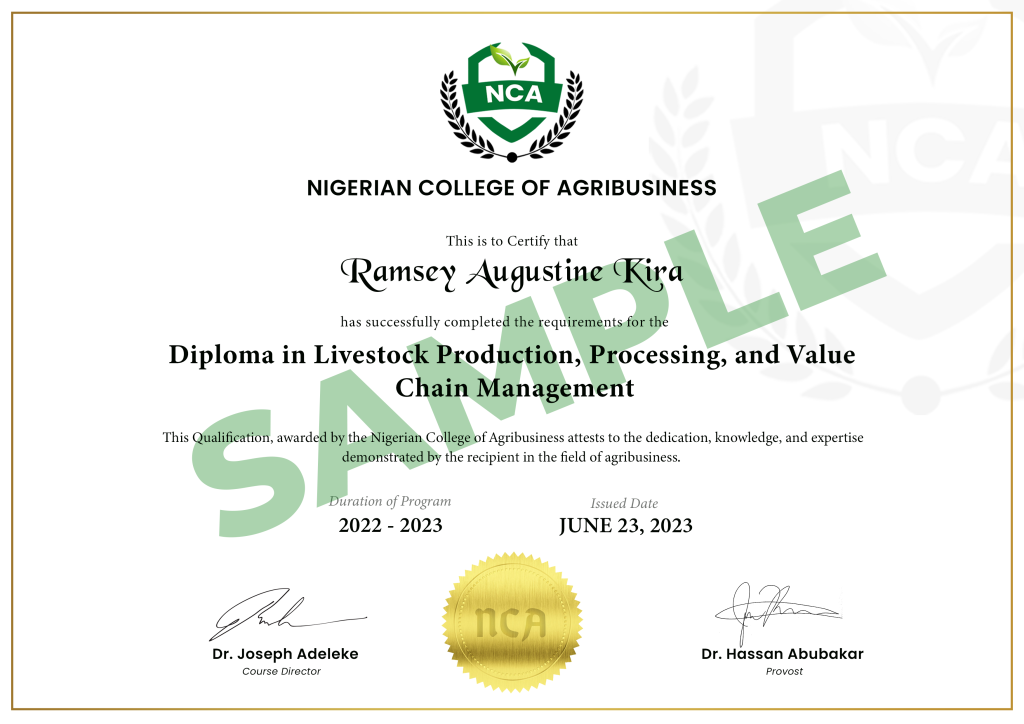December 11, 2023
12 Weeks
N350,000
10% Discount for Early Birds
$500
ONLINE/BLENDED
As the world grapples with the impacts of climate change and the need for sustainable food production, the Diploma in Climate-Smart Agriculture and Food Systems provides an in-depth exploration of innovative agricultural practices and strategies that are resilient to climate variability. This comprehensive diploma program equips participants with the knowledge and skills to promote sustainable and climate-resilient food systems while addressing global challenges in agriculture, food security, and environmental conservation.
Students will apply climate-smart agricultural principles and strategies to a real-world agricultural or food systems scenario, demonstrating their ability to promote resilience and sustainability.
Upon Successful Completion Participants will earn a prestigious Diploma in Development Leadership from the Nigerian College of Agribusiness. At convocation, graduating students will receive their Certificate as well as their Transcript of academic records.
Faculty members are experienced professionals in Climate Smart Agriculture and Climate Action Leadership with extensive years of industry practice experience.

Beneficiary Bank: Zenith Bank Plc
Account Number: 1228461510
Account Name: Nigeria College of Agribusiness
Do you need any further assistance regarding this program, send an email to: [email protected] or send chat with a program executive on WhatsApp via: 08109532513 (Nigeria), +2349129158989 (International)
Ready to Begin your application process? Click on “Apply Now” to access the application form

Our mission is to cultivate a vibrant, sustainable and profitable agribusiness sector that drives economic growth and social progress across Africa and beyond.
We are committed towards educating a new generation of agribusiness sector leaders that will transform the economic fortunes of the African continent
© NCAEDU 2023 All Rights Reserved.